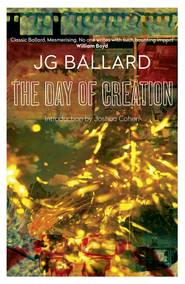По всем вопросам обращайтесь на: info@litportal.ru
(©) 2003-2024.
✖
The Kindness of Women
Автор
Год написания книги
2018
Настройки чтения
Размер шрифта
Высота строк
Поля
Two other cinder-pickers joined me on the ash-tip – the elderly Mrs Tootle, who shared a cubicle with her sister in the women’s hut and brewed unpleasant herbal teas from the weeds and wildflowers along the perimeter fence; and Mr Hopkins, the art master at the Cathedral School, who was forever trying to warm his room in G Block for his malarial wife. He poked at the cinders with a wooden ruler, while Mrs Tootle scraped about with an old pair of sugar tongs. Neither had the speed and flair of my bent-wire tweezers. A modest treasure of half-burnt anthracite lay in these cinder heaps, but few of the internees would stir themselves to scavenge for warmth. They preferred to huddle together in their dormitories, complaining about the cold.
Squatting on my haunches, I picked out the pieces of coke, some no larger than a peanut, that had survived the riddling. I flicked them into my biscuit tin, to be traded when it was full for an extra sweet potato or a pre-war copy of Reader’s Digest or Popular Mechanics, which the American sailors monopolised. These magazines had kept me going through the long years, feeding a desperate imagination. Mrs Dwight was forever criticising me for dreaming too much, but my imagination was all that I had.
As I knew, criticising everyone else was a full-time British occupation. Sitting on the ash-tip, while Mrs Tootle and Mr Hopkins scratched at the spent clinkers in their doomed way, I looked down at the camp. The British had nothing to which they looked forward, unlike the Americans, whose world was always filled with possibilities. Every American was an advertisement for confidence and success, like the vivid pages in the Saturday Evening Post, while every Englishman was a sign saying ‘trespassers prosecuted’. One day, my father had told me, I would go to school in England. Already I feared that the England I visited after the war would be a larger version of Lunghua camp, with all its snobberies and social divisions, its ‘best’ families with their strangled talk of ‘London town’ brandished about like the badges of an exclusive club, a club I would do my best to avoid joining. The last heat faded from the cinders below my feet. The night air was chilled by the flooded paddy fields and the maze of creeks and canals around Lunghua. I watched the exhaust of the Japanese fighters, warming myself with the thought of their powerful engines. Mr Hopkins had wandered away from the ash-tip, carrying his few coals back to his invalid wife, but Mrs Tootle still stabbed at the dead clinkers. There was an evening curfew at Lunghua, but the Japanese made little effort to enforce it. In the unheated huts and cement buildings of the former teacher-training college the internees went early to bed, assuming that they had ever got up in the first place. Mrs Dwight and the missionary ladies were used to my roving the adult dormitories with my chessboard, gathering the latest rumours of war.
I slid down the slope towards Mrs Tootle and selected three choice pieces of coke from my tin.
‘Jamie … I can’t take those.’
‘You keep them, Mrs Tootle. Tell your sister I gave them to you.’
‘I will …’
A cup of herbal tea already brewing in her mind, she drifted off into the darkness. I felt sorry for her, but I needed her out of the way. When I was alone on the ash-tip, screened from the camp buildings by the kitchen roof, I crawled across the cinder slope to the brick wall of the annex.
Here was stored Lunghua camp’s food supply for the coming week – sacks of polished rice and cracked wheat, and straw bales of grey sweet potatoes. Crouching by the rear wall of the annex, I reached inside my jacket and withdrew a crude knife I had fashioned from a broken Chinese bayonet. All but two inches of the blade were missing when I found the weapon in a disused well behind the camp hospital, but I had honed it into a useful tool. During the hours I spent on the ash-tip, waiting for the next consignment of spent coals, I had noticed that the mortar surrounding the brickwork was little harder than dried mud. Either the Japanese engineers responsible for equipping Lunghua camp had never known that they were being cheated by the Chinese contractors, or they had not expected the war to last more than a few months before America sued for peace.
Selecting the lowest course, I scraped at the mortar, the sound of the blade lost in the rumble of engines at the airfield. Within ten minutes I had loosened the first brick. Carefully, I withdrew it from the wall, slid my fingers into the dark space and touched the coarse straw sacking of a bale of sweet potatoes.
The next two bricks fell into my hands, as if the entire wall of the annex was about to collapse. They lay beside me, like gold bars in the darkness. Later I would return them to the wall, using the white coal-dust as a substitute mortar. With any luck I would be able to revisit the food store without arousing the suspicions of Mr Christie, a former manager of the Palace Hotel, who guarded these mildewed potatoes and warehouse sweepings with fanatic zeal. If Mr Christie had his way, the food reserves of Lunghua camp would be larger than the Sincere Company’s department store, and all the internees would be dead.
I pulled the bricks from the soft mortar, steadily enlarging the aperture. The distant lights of the airfield threw silhouettes of the perimeter fence-posts on to the wall above my head. A straw sack filled most of the opening, but in the sweeping searchlight I could see the airless interior of the store-room, a mysterious inner world like the dwarfs’ cottage in Snow White. The heavy sacks slumbered against the walls, and their comforting bulk reminded me of a family of dozing bears. My few doubts about stealing the food were forgotten. Already I thought of crawling into the store-room and sealing the wall behind me. Peggy and I would sleep there, out of the cold, safe among the great drowsing sacks …
*
A signal flare exploded in the night sky. Its amber light trembled in a halo of white smoke. It fell slowly towards the open ground between the perimeter fence of the camp and the airfield boundary, reflected in the surface of a flooded paddy field.
Without thinking I stood up, my shadow leaping across the wall of the annex. Fifty feet from me four figures were caught by the intense light, their orange faces like lanterns in the darkness. Two of the men had already climbed through the wire, and a third knelt with one leg through the sagging strands. They shouted to each other above the spitting flare, and the man caught in the wire tore off his shirt and stumbled through the grass towards the paddy field. His shirt hung on the wire like a ragged flag.
Torches veered across the ground on both sides of the fence. Armed Japanese soldiers stood in the deep grass between the perimeter fence and the airfield. Already the would-be escapers had stopped and were waiting for the Japanese to approach them. The fourth figure stood by the wire, and began to disentangle the tattered shirt. When he looked up I recognised the blond hair and pinched face of David Hunter.
The signal flare fell into the paddy field and was swallowed by its black surface. Taking my chance, I scrambled from the ash-tip and darted past the rear door of the kitchens. I tripped over my cinder-tin, scattering the precious coke, and stumbled into a torch-beam that filled my face. Rifle raised, Private Kimura blocked the path leading to the children’s hut, the night mist rising from his nostrils. Beside him stood Sergeant Nagata, the beam of his torch tapping my head as he watched his men round up the escaping prisoners. When they had been knocked to the ground, Sergeant Nagata beckoned me to him. I waited for him to slap me, but he stared into my face as if he had difficulty in recognising me, and found it scarcely conceivable that I, of all the internees in Lunghua, should want to escape.
Later we sat on one side of the wooden table in the guard-house. The Japanese soldiers stood against the wall, their boots covered with wet grass. The camp commandant, Mr Hyashi, roused from his quarters in the staff bungalows, paced up and down, doing his best to control himself. A former diplomat at the Japanese Embassy in London, he was a small and precise man of painstaking nervousness, the only Japanese civilian in the camp and as frightened of Sergeant Nagata as any of the prisoners. Long pauses interrupted his interrogation, as he formulated the necessary phrases in his laboured English.
Bored by this time-wasting, Sergeant Nagata strolled behind us, slapping our heads at random. My ears rang, as they had done after the bomb in the Avenue Edward VII. I was sure we would soon be too deaf to understand Mr Hyashi’s halting questions.
At one end of the wooden bench, his chest and face bruised by the rifle stocks, was a 29-year-old Londoner called Mariner. After being discharged from the Shanghai Police for robbing a rickshaw coolie he had become a foreman at the Shell terminal, and had scarcely stirred from his bunk since entering the camp. Beside him were the Ralston brothers, stable lads who had come out from England to work at the Shanghai racecourse. They joked nervously with David Hunter, who sat between them with his head lowered, blond hair streaked with blood.
Why David, with his caring parents, should have tried to escape from Lunghua puzzled me, and clearly puzzled Mr Hyashi.
‘You walked … through the … fence?’ He pointed at Mariner. ‘You?’
‘We didn’t walk, no. We climbed through the fence,’ Mariner explained half-facetiously. ‘You know, stepped like …’
The older Ralston inclined his head, dripping blood on to my arm, and said in a stage-whisper: ‘I knew I got these cuts somewhere.’
Both Ralstons tittered, and Sergeant Nagata stepped behind them and slapped their heads with his hard fist. They fell forward across the table, dazed but still smiling in a cracked way, and unable to hear Mr Hyashi’s next question for which they were punched again.
I frowned at David, warning him to keep a straight face, but he was caught up by the Britishers’ horseplay. Without thinking, David began to titter with them, tears streaming across his cheeks. He avoided my eyes, as if he was glad to be caught and was prepared to be punished. Like the Chinese, they laughed because they were frightened, but to Mr Hyashi and Sergeant Nagata they were being deliberately insolent in a peculiarly British way, never more arrogant than when they had blundered into defeat.
Baffled by them, Mr Hyashi took up his position at the head of the table, forced to preside over this deranged meeting for which his diplomatic training at the Foreign Ministry in Tokyo had not prepared him. He stood a few inches from me, and I could feel him trembling as Sergeant Nagata slapped the laughing Ralstons. I was so frightened that I, too, wanted to laugh, but already I was wondering what would happen when the sergeant discovered my attempt to break into the food store.
Mr Hyashi gazed down at me, noting my lowered eyes. Relieved to find one small point of sanity, he placed his unsteady palm on my head, as if to reassure himself that I was real.
‘You not … trying to escape?’
‘No, Mr Hyashi.’
‘Not?’
‘Mr Hyashi, I like Lunghua camp. I don’t want to escape.’
For the first time Mr Hyashi raised his hand to restrain Sergeant Nagata. ‘Not escaping. Good.’ He seemed immensely relieved.
The older Ralston leaned against me, his eyes dazed by the blows. ‘Look after yourself, lad. You’re on your own here.’
‘Everyone in Lunghua …’ Mr Hyashi began, as if addressing the assembled camp. He searched for a phrase, and then let the air leak from his lungs, visibly resigned that he would never master this strange language and its stranger people. Covered in blood, Mariner was lying across the table, but the Ralstons were still uncowed, ready to provoke the Japanese and force them to do their worst. I admired them for their courage, as much as I admired the Japanese. I never understood why the only brave Britishers were the ones I was never allowed to meet, while the officers my mother and her friends danced with at the Country Club had surrendered without a shot at Singapore.
Mr Hyashi pointed to me, and turned a wavering forefinger towards the door. Five minutes later I was back in the children’s hut, regaling Peggy and an astonished Mrs Dwight with the saga of my attempted escape.
On the following day the first American daylight raid took place over Shanghai. Flying from airfields near Chungking, Fortress bombers attacked the dockyards at Yangtsepoo. At last the war was coming home to the Japanese. As they strengthened the anti-aircraft defences of Lunghua airfield all concern for the escape attempt was forgotten. After a night in the guard-house cells the three men returned to convalesce on their bunks in E Block. A shocked David Hunter, his face still bruised, watched me from the window of his parents’ room, refusing to wave back to me as I stood on the parade ground.
To my relief, no one learned of my attempt to break into the food store. The Japanese cemented the bricks into the wall, assuming that the escaping prisoners had tried to supply themselves with rations for their long cross-country walk to the Chinese lines four hundred miles away.
To anyone who would believe me, I pretended that I had joined the escape party at the last moment. Mrs Dwight expected nothing less, but Peggy shook her head over my boasts in her kindly, sceptical way. She knew that I was too wedded to Lunghua to want to leave it, that my entire world had been shaped by the camp, and that I had found a special freedom which I had never known in Shanghai.
One day the war would end, but for the time being I was busy learning to cope with the stony couple whose room I shared. Around my bunk I constructed a small hutch, where I tried to recreate the peaceful interior of the food-store. Sitting on the ash-tip as Mr Sangster tossed the evening’s coals at my feet, I waited for the American bombs to set fire to the sky, and thought of the white dust and the cracking coffins in the Avenue Edward VII.
Below me the fresh mortar marked the outline of a secret door into an interior world. Far from wanting to escape from the camp, I had been trying to burrow ever more deeply into its heart.
3 (#ulink_4626be35-833e-5ca5-98f7-b60cef6d9248)
The Japanese Soldiers (#ulink_4626be35-833e-5ca5-98f7-b60cef6d9248)
Everyone was shouting that the war had ended. Prisoners leaned from their windows, waving to each other across the parade ground and pointing to the sky. Peggy Gardner and a delegation of missionary women gathered outside the guard-house and peered through the door at Sergeant Nagata’s ransacked desk. I stood by the open gates of the camp, looking at the dusty road that followed the long arm of the Whangpoo river towards the south. The August sky was veiled by layers of haze that enclosed the empty landscape like an immense mosquito net. Threads of cloud ran through the pearly light, stitching the sky together. Vapour trails left by the American reconnaissance planes dissolved over my head, the debris perhaps of gigantic letters spelling out an apocalyptic message.
‘What do they say, Jamie?’ Peggy called to me. ‘Is the war really over?’
‘Ask Sergeant Nagata. I’m going to the river.’
‘Sergeant Nagata’s not here any more. You can go back to Shanghai now.’ She plucked at the patches on her dress, sorry to see me leave but not yet sure that I had the necessary nerve. ‘If you want to …’
‘I’ll come back tonight. Wait for me at the hut.’
For all the excitement, no one was in any hurry to evacuate the camp, as Peggy had noticed. For days we had listened to rumours that the Americans had dropped a new super-bomb on Japan, destroying the cities of Nagasaki and Hiroshima. Some of the prisoners even claimed to have seen the bomb-flash. The squadrons of B-29s had broken off their attacks on Lunghua airfield, but armed Japanese soldiers still waited by the anti-aircraft guns. One morning we woke to find that Mr Hyashi and the guards had vanished, slipping away under the cover of the night curfew. We stood by the perimeter wire, like children abandoned by their teachers and unsure whether to leave the classroom.
All day we watched the Shanghai road, expecting a convoy of American vehicles to speed towards us out of the dust, though everyone knew that the nearest Americans were hundreds of miles away on the island of Okinawa. Bored by this stalemate, a few men from E Block stepped through the wire and stood in the deep grass. Staring at the silent air, they seemed oddly self-conscious, as if they had forgotten who they were.










